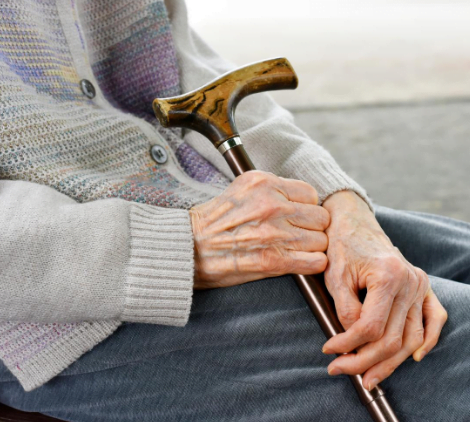
Tips on Quick Recovery to Surgery
Key Takeaways
- Successful recovery starts with following post-op instructions and taking medications as directed.
- Rest is essential, but light movement helps prevent complications.
- Eating well and staying hydrated support healing.
- Emotional support can ease stress during recovery.
- LifeWorx caregivers assist with daily tasks and promote a safe, steady recovery.
Hip replacement and hip resurfacing are life-changing operations that restore mobility and relieve chronic pain. Here are some secrets to a smooth recovery from hip replacement or resurfacing.Hip replacement and hip resurfacing are life-changing operations that restore mobility and relieve chronic pain. For either of these procedures to be a success, you need a skilled surgeon, of course. But a large part of the responsibility also lies with you as a patient: you need to practice good self-care both before and after the operation, says Michael J. Maynard, M.D., attending orthopedic surgeon at Hospital for Special Surgery in Manhattan, New York.
The following tips can maximize your chances of a flawless recovery and many happy days ahead. They also work for any major orthopedic surgery, such as knee and shoulder replacement. (As always, check with your physician before following any pre- or post-operative advice.)
Pre-Surgery Strategies
Avoid any type of starvation or weight reduction diet for at least the month immediately prior to the procedure. “People often think, ‘If I lose weight, I’m going to do a lot better,’ but dieting can often deplete their body of some essential nutrients that are required for recovery,’ ” warns Dr. Maynard. If you feel you must lose weight, stop dieting at least a month—or preferably more—before surgery. That way, all of your metabolic stores will be full when you go to the operation.
Stock up on foods you like—to consume after your surgery—as well as any supplements your doctor advises you to take post-operatively. “There are three primary aspects of nutrition which I think are important,” Dr. Maynard says. The first, he explains, is a good multivitamin, such as you can get from any pharmacy, to ensure your basic vitamin needs are met. Next, he recommends taking a calcium-with-vitamin-D supplement post-operatively. “It will help repair anything done to the bone, including helping a new joint replacement attach itself to the bone,” he says. Last, Dr. Maynard suggests supplemental protein. “Patients need to get all of the essential amino acids in order to form all the connective tissue they need to really recover—to heal the skin, the tissues, all of it,” he explains. In addition, protein will help build muscle, tendon, and bone. Some common protein supplements include Muscle Milk, Nutrament, and Myoplex. As always, check with your doctor to see which, if any, protein supplements (and/or or other supplements) he or she recommends.
Be “yo” on yogurt. Even if you don’t usually eat yogurt, keep a few containers of it on hand (along with any other probiotics your doctor recommends) for your recovery period. “They can counteract the constipating effect of some of the pain-relieving medicines,” Dr. Maynard shares. High-fiber foods can help with constipation as well.
Have one or two heating pads or hot water bottles available. A few days into your recovery period, these can be applied to the area that was operated on. “It will dilate the local blood vessels and get more blood flow, more oxygen, and more nutrients into the healing area, and it will also be a soothing pain reliever,” Dr. Maynard says.
Establish a reliable telemedicine connection with your surgeon. That way, if you’re having a problem and can’t make it into your surgeon’s office, you can at least speak face-to-face with him or her over a Zoom or similar connection.
Post-Surgery Steps
If you’re following your doctor’s advice regarding diet and wound treatment, you’re off to a great start. Here is some more advice that can aid your recovery:
Don’t wash directly over the incision for at least the first four days. This can help prevent infections from forming. In fact, for at least 10 days, avoid sweating or soaking the wound open (say, by going into a bathtub, swimming pool, steam room, or sauna), as this can allow bacteria inside. “That’s important for wound care, and that’s for any type of incision, and any type of surgery,” says Dr. Maynard.
Be aware of the number-one sign of infection. “The top sign is increasing pain, on a day-to-day basis, at the operation site,” Dr. Maynard says. “Redness at the wound site, or even a low-grade fever, are not as predictive of underlying infection. There will be a lot of people who have a low-grade fever up to 101 degrees—as just a normal reaction. Some people will have redness that’s just either an allergic reaction or some other irritation. On the other hand, pain that’s steadily increasing is a clear sign of infection.” If you have this symptom, contact your physician immediately.
Ask your doctor about the signs of blood clots. “Having surgery causes your liver to make a lot more clotting proteins than usual,” says Dr. Maynard. This, in turn, makes you more likely to form dangerous blood clots. “Most people should therefore be on some type of anticoagulant, whether it’s aspirin or something stronger than that,” he says. And of course, you should stay alert to the signs of a blood clot: “That’s typically tenderness in the calves,” Dr. Maynard shares. “It could be on the opposite side from where your operation was on, or on the same side.” And, of course, seek quick medical attention if you have any sudden-onset difficulty breathing, as it may mean that a blood clot has traveled to your lungs.
Don’t return to high-energy-demand activities for at least a month after surgery. During the first month, most of your metabolic energy is prioritized to healing the actual surgery. “If you start trying to do other things, just because you’re a go-getter and you want to get back into activities, you’re stealing energy away from the energy process that is required to heal your surgery,” Dr. Maynard warns. You might feel ready to take on the world, but it is more prudent to avoid the gym, bike rides, long walks, and the like for those first four weeks. Your body will thank you—both in the short run and for years to come—for taking it easy.
And LifeWorx’ Registered Nurse, Giovanna Lombardi, says to set a realistic mindset.
It is important to have realistic goals for yourself. Surgery will improve quality of life and decrease pain, but daily life will not automatically continue the way it was prior to surgery. Having patience with your body and its recovery process is imperative. When you know what to expect prior to hip replacement surgery it will decrease anxiety, allow you to plan accordingly, and you’ll easily welcome the new change of life during recovery.
Establishing a well-organized and skilled supportive caregiving system can improve your morale while simultaneously allowing you to rest, as Dr. Maynard mentioned it is important to not steal energy away from your healing process.”
Find your peace-of-mind.
Explore LifeWorx’ in-home elder care services.
















